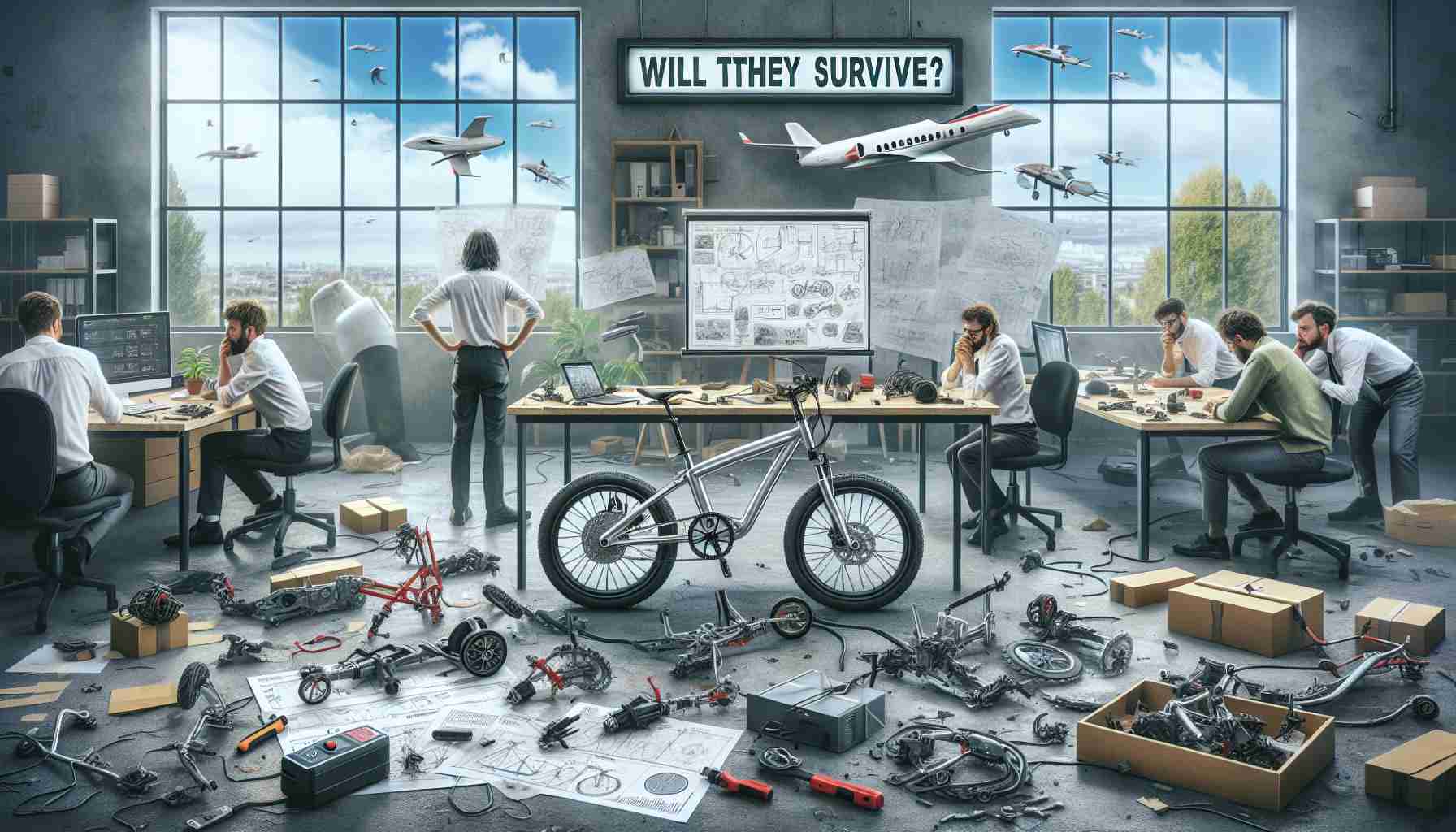The Rise and Fall of Angell Bikes
The French electric bike startup Angell is on the brink of financial collapse and plans to announce insolvency shortly. Launched in 2019 by Marc Simoncini, renowned for founding the dating site Meetic, Angell failed to capture the market despite its stylish, French-assembled bikes that boasted connectivity with smartphones.
In 2023, strategic investments came from Bpifrance and logistics giant CMA-CGM, and even the automobile brand Mini ordered a series of bikes. However, trouble loomed when the company identified significant issues, including reports of frame breakages on its first-generation models, leading to a recall of 5,000 units. The firm struggled to find repair solutions with partners, including Seb and KickMaker, exacerbating financial difficulties.
Simoncini candidly admitted that manufacturing in France may have been a misstep, attributing their high prices to weak sales—a struggle against the competitive Asian market. Unfortunately for customers, those who own the early models of Angell bikes face bleak prospects for refunds, as the company prepares to cease operations.
On a broader scale, the cycling market appears stagnant in 2024, with other brands like Dutch manufacturer VanMoof having collapsed in 2023. Meanwhile, Belgian competitor Cowboy maintains a cautious approach, aiming for profitability by 2025, as many once-hopeful startups face an uphill battle in a challenging landscape.
The Electric Bike Market: Implications and Future Trends
The collapse of companies like Angell and VanMoof signals a significant shift in the electric bike market, raising questions about the sustainability of such ventures in a highly competitive global marketplace. With consumer interest in eco-friendly transportation rising, the exit of electric bike startups may reflect challenges in balance between innovation and economic feasibility. An increasing number of consumers are now wary of investing in fledgling brands when reliability and service remain uncertain.
Culturally, cycling represents not just a mode of transportation, but a lifestyle choice increasingly linked to sustainability. However, failures in this sector could dampen public enthusiasm and discourage investment in future innovative models. Established brands with proven reliability could dominate this space, ultimately limiting diversity and consumer choice.
On an environmental level, the rise and fall of electric bicycles impacts urban planning and climate initiatives. Cities aiming to reduce carbon footprints may find their goals hindered as public confidence in electric bikes wavers. Long-term trends indicate that consumers may prioritize quality over trendy features, thereby influencing future manufacturing practices.
The coming years will likely reveal a market correcting itself—with a focus on durable products and transparent business practices. This evolution may foster a stronger, more resilient electric bike sector, ultimately benefiting society through improved transportation alternatives.
The Untold Story of Angell Bikes: From Innovative Dreams to Uncertain Futures
The Rise and Fall of Angell Bikes
Angell Bikes, a French electric bike startup founded by Marc Simoncini in 2019, is now facing a dire financial situation and is set to announce insolvency. Despite ambitious beginnings that promised stylish, technologically advanced bikes, Angell struggled to gain a foothold in the competitive cycling market.
Features of Angell Bikes
Angell’s bikes distinguished themselves with several innovative features, including:
– Smart Connectivity: The bikes were designed to connect seamlessly with smartphones, offering tracking and various app-based functionalities.
– Sleek Design: The French-assembled bicycles came with an aesthetic appeal that was targeted at urban commuters looking for both style and performance.
These features were aimed at capturing a market hungry for modern, tech-enhanced transportation solutions.
Limitations and Challenges
However, Angell Bikes faced significant challenges that ultimately hindered their success:
– Manufacturing Issues: Manufacturing in France added to production costs, making the bikes less competitive against cheaper alternatives from Asia.
– Product Recalls: In 2023, the company had to recall 5,000 units due to frame breakages reported in early models, which severely impacted customer trust and sales.
– Lack of Repair Solutions: Partnering with firms like Seb and KickMaker for repairs failed to yield timely solutions, leading to frustration among customers and dealers alike.
Market Analysis: Cycling Industry Landscape
The rise and fall of Angell Bikes reflect broader trends in the cycling market, which appears stagnant as of 2024. Other notable incidents include:
– VanMoof’s Collapse: The Dutch e-bike manufacturer also faced bankruptcy in 2023, highlighting the fragility of electric bike startups.
– Cowboy’s Conservative Strategy: Believing in a cautious approach, Cowboy is aiming for profitability by 2025, demonstrating a shift in strategy among once-optimistic companies.
Pros and Cons of Angell Bikes
Pros:
– Innovative technology with smartphone integration.
– Stylish design appealing to urban consumers.
Cons:
– High manufacturing costs leading to expensive retail prices.
– Major product flaws requiring recalls and affecting brand reputation.
– Insufficient customer service regarding repairs and refunds.
Future Predictions for the E-Bike Market
The future of electric bikes may hinge on several factors:
– Focus on Affordability: Companies may need to devise strategies to lower production costs and offer competitive pricing to consumers.
– Sustainability Trends: With an increasing awareness of environmental issues, there may be a stronger push towards sustainable manufacturing practices.
– Increased Innovation: The market leaders will likely invest in R&D to enhance the consumer experience and develop more reliable products.
Conclusion
Angell Bikes stands as a cautionary tale within the e-bike sector, illustrating the challenges facing ambitious startups in a volatile market. As the company prepares to launch insolvency procedures, it serves as a reminder of the competitive nature of the cycling industry and the varied paths that innovation can take.
For further information on electric bike trends and initiatives, visit Cycling News.
